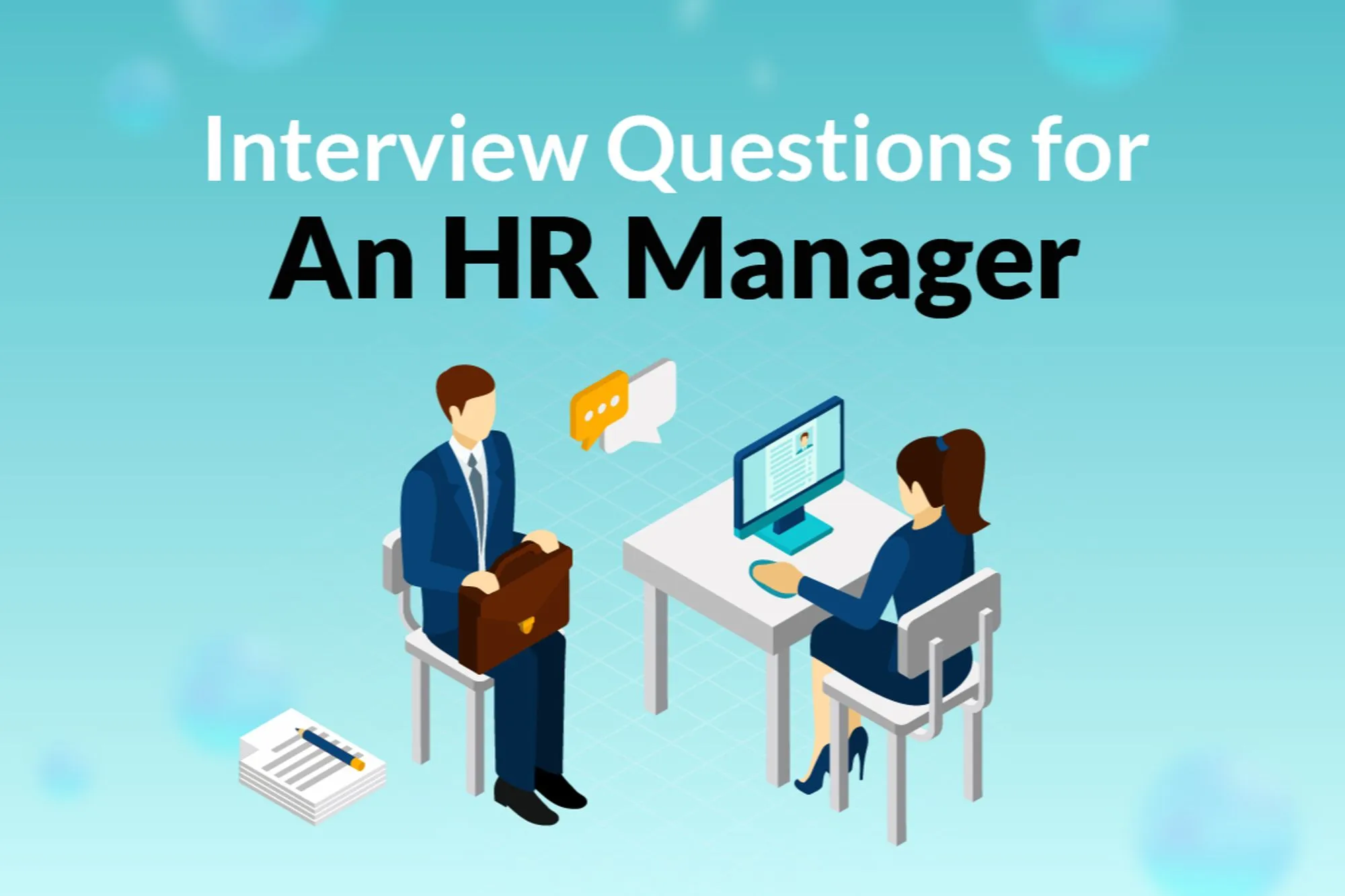A good HR manager can significantly reduce employee turnover in small and medium businesses by fostering a sense of belonging and recognition, developing career development opportunities, providing managerial coaching, and implementing effective training and development programs.
We offer a comprehensive set of interview questions for an HR manager, focusing on various aspects of the role. These questions are designed to help employers gain insights into the candidates’ experiences, behaviors, and alignment with the HR role.
- Basic Interview Questions for an HR Manager
- Behavioral Questions to Ask an HR Manager
- Culture and Fit Questions
- Leadership & Management Ability Questions
- Remote Work Management Questions for an HR Manager
- Diversity, Equity, and Inclusion (DEI) Questions to Promote Diversity in Hiring
- Interview Questions about Emerging Trends in HR Management
- Longevity Questions
- Let Boulo be Your Guide
Basic Interview Questions for an HR Manager
The basic interview questions for an HR manager are not just routine but are strategic, enabling SMBs to delve into the qualifications, experience, and interpersonal skills crucial for a successful HR manager.
General Background and Past HR Experience
1. Can you describe your previous HR roles and how they have prepared you for this position?
Benefit: Understanding the candidate’s past roles can provide insights into their prior responsibilities
2. What HR software and tools are you most familiar with, and how have you implemented them in your previous roles?
Benefit: This question helps assess the candidate’s technical proficiency and ability to leverage technology for streamlined HR processes.
3. How have you handled a significant HR challenge in the past, and what was the outcome?
Benefit: This question probes the candidate’s problem-solving skills and ability to handle complex situations.
Evaluation: Questions about a candidate’s background and previous HR experience provide insights into the candidate’s practical knowledge in managing workplace scenarios.
Understanding their past experiences helps gauge how well they can adapt to and address the unique challenges and dynamics of your business environment when hiring an HR manager.

Behavioral Questions to Ask an HR Manager
Focusing on behavioral questions gives hiring managers insight into a candidate’s real-world problem-solving, communication skills, and leadership style.
Managing Tough Situations:
1. How have you handled a challenging situation in the workplace?
Benefit: This question provides insight into how they can maintain a positive work environment and uphold company policies under pressure.
2. Can you give an example of a time you had to mediate a conflict between employees? What was your approach and what was the outcome?
Benefit: Understanding the candidate’s ability to mediate and resolve conflicts ensures they can foster a positive and collaborative workplace culture.
3. Describe a situation where you had to implement a major policy change. How did you manage the transition and communicate with the staff?
Benefit: An HR manager’s ability to smoothly transition the workforce through changes while maintaining clear communication will help with business continuity and employee satisfaction.
Evaluation: Asking an HR manager how they handle challenging situations, from interpersonal conflicts to compliance issues, can provide valuable insight into their problem-solving skills and emotional intelligence in the workplace.
Culture and Fit Questions
Use culture and fit questions to evaluate how well a candidate aligns with the company’s values and work environment, creating a harmonious and productive addition to the team.

Compatibility with Organizational Culture:
1. What is your approach to fostering a positive workplace culture?
Benefit: This question assesses the candidate’s understanding of and commitment to workplace culture. It gives insights into how they plan to align HR strategies with the company’s core values and mission.
2. How do you ensure that the company’s values are integrated into its HR policies and practices?
Benefit: This question evaluates the candidate’s ability to maintain consistency in values across various HR functions like recruitment, performance management, and employee development.
3. Can you give an example of how you contributed to building a diverse and inclusive work environment in your previous role?
Benefit: Diversity and inclusion are increasingly important in today’s workforce. This question shows how the candidate will approach diversity initiatives and ensure an inclusive culture that respects and values differences.
Evaluation: Questions about cultural alignment help assess whether a candidate’s values, work style, and vision resonate with the company’s culture. These interview questions for the HR manager position delve into how the candidate will thrive in the business’s unique culture.
Leadership & Management Ability Questions
By concentrating on leadership questions, SMBs gain deep insights into a candidate’s leadership style, decision-making skills, and management capabilities, helping steer their team toward success.

Leadership Style and Effectiveness:
1. How do you motivate and lead your team?
Benefit: This question delves into the candidate’s leadership style and their ability to motivate and effectively lead the team. It helps to gauge how they inspire, direct, and sustain team morale and productivity.
2. Describe a time when you had to lead a significant organizational change. What strategies did you use to ensure its success?
Benefit: This question assesses the candidate’s change management skills and strategic thinking. It reveals how they plan, communicate, and execute changes while considering the impact on employees and the organization.
3. How do you balance the need to enforce company policies with the flexibility required to address individual employee needs?
Benefit: This question evaluates the candidate’s ability to maintain fairness and consistency while being adaptable. It highlights their ability to uphold standards and procedures while being responsive to individual circumstances, maintaining both employee trust and organizational integrity.
Evaluation: A Gallup study (2018) found that managers account for at least 70% of the variance in employee engagement scores. This highlights the importance of effective leadership in HR roles, especially in smaller businesses where their influence is more pronounced and directly affects team dynamics.
Remote Work Management Questions for an HR Manager
Assessing a candidate’s ability to manage and support a hybrid or remote workforce with these suggested questions below:
Managing Remote Teams:
1. What strategies do you use to manage and engage remote teams effectively?
Benefit: The response will reveal the candidate’s proficiency in utilizing digital tools and fostering communication and team cohesion in a virtual environment.
2. How do you measure and maintain productivity in a hybrid or remote work setting?
Benefit: This question evaluates the candidate’s approach to tracking and enhancing team productivity in a remote context, making sure efficient work practices and output.
3. Can you describe your experience in facilitating remote team building and maintaining a strong company culture virtually?
Benefit: Understanding the candidate’s methods for virtual team building and cultural integration demonstrates their capability to create a unified and engaging remote work environment.

Evaluation: By asking remote or hybrid specific questions during an HR manager interview, SMBs can gauge a candidate’s ability to handle the unique challenges of remote work management.
These questions help in assessing the candidate’s skills in communication, team coordination, and strategies for maintaining a positive and productive remote work culture.
Studies indicate that businesses with strong remote work policies can see up to a 25% reduction in employee turnover, according to a report by Owl Labs.
Diversity, Equity, and Inclusion (DEI) Questions to Promote Diversity in Hiring
Here are ways to ask HR managers DEI questions to ensure they can drive diversity initiatives and create a welcoming environment for all employees.
DEI Strategies:
1. What strategies do you employ to promote diversity and inclusivity during recruitment?
Benefit: This question helps to understand the candidate’s commitment to DEI principles and their approach to eliminating biases in recruitment.

2. Can you provide examples of initiatives you have implemented to promote equity and inclusion in the workplace?
Benefit: The response will indicate the candidate’s experience in developing and implementing DEI programs that have a real impact on the workplace culture.
3. How do you approach and handle conversations around sensitive DEI topics in the workplace?
Benefit: This question assesses the candidate’s communication skills and sensitivity in addressing DEI issues. It reveals the candidate’s ability to facilitate open and constructive dialogues, demonstrating their skill in navigating complex and potentially challenging discussions with empathy and professionalism.
Evaluation: Integrating DEI-focused questions in HR manager interviews helps SMBs identify candidates adept in managing diversity and committed to promoting an inclusive culture.
Research shows that companies with diverse management teams have 19% higher revenue due to innovation, as reported by Boston Consulting Group.
This approach aligns with Boulo’s value proposition of building a diverse talent pool, emphasizing the recruitment of experienced women, mothers, and caregivers who bring a wealth of knowledge from various sectors.
Interview Questions about Emerging Trends in HR Management
Learn some of the targeted questions that allow SMBs to choose an HR manager who is both innovative and strategically aligned with future workplace dynamics.
Adaptation to Industry Changes:
1. How do you stay updated with the latest HR trends?
Benefit: This question evaluates the candidate’s commitment to continuous learning and staying abreast of new developments in the field of HR.

2. Can you discuss a recent HR trend you’ve incorporated into your practices? What was the impact?
Benefit: This question assesses the candidate’s ability to stay informed and to practically apply new HR trends and innovations. It highlights the candidate’s capacity for strategic thinking and their effectiveness in implementing modern solutions that can benefit the business.
3. How do you foresee the role of HR evolving in the next few years, and how would you prepare for these changes?
Benefit: The answer provides insight into the candidate’s foresight, adaptability, and readiness to embrace and lead through change.
Evaluation: These questions assess the candidate’s ability to leverage technology for efficient processes, as exemplified by Boulo’s built-in Applicant Tracking System (ATS), which simplifies the tracking of employee applications. Furthermore, Boulo’s emphasis on quickly matching companies with qualified, diverse candidates highlights the importance of agility in recruitment.
According to LinkedIn’s 2020 Global Talent Trends report, 70% of HR professionals believe that embracing new technologies and data-driven decision-making is key to future HR success.
Longevity Questions
Longevity questions reveal deeper insights into a candidate’s long-term potential and commitment.
Final Thoughts and Clarifications:
1. Is there anything else you would like to add that we haven’t covered?
Benefit: This open-ended question can reveal aspects of the candidate’s experience or skills that are particularly relevant but weren’t directly asked.

2. What are your expectations for growth and development in this role, and how do you plan to achieve them?
Benefit: This question helps to understand the candidate’s personal and professional aspirations and how they align with the company’s growth trajectory.
3. Reflecting on our discussion, how do you feel your experience and skills uniquely position you for this role?
Benefit: For small and medium businesses, this reflective question helps in assessing the candidate’s self-awareness and confidence in their ability to contribute to the company. It also provides a concise overview of why the candidate believes they are the right fit for the position.
Evaluation: These questions allow candidates to address any uncertainties, highlight their qualifications, and reiterate their enthusiasm for the position.
Simultaneously, they allow the interviewer to assess the candidate’s eagerness and compatibility with the company’s culture. A study by the Society for Human Resource Management (SHRM) emphasizes the importance of clear communication during interviews. Effective communication increases a candidate’s likelihood of accepting an offer and contributes to their overall job satisfaction post-hiring.
Let Boulo be Your Guide
Utilizing structured interview questions for an HR manager hire a comprehensive understanding of the candidates’ abilities and alignment with the HR role.
Ranging from basic to advanced topics, they help identify a candidate who has the necessary skills and fit for the company’s culture and vision.
Simplify your hiring journey—explore Boulo today to discover how our plans can connect you with the ideal candidate, meeting your business goals and saving you time!

